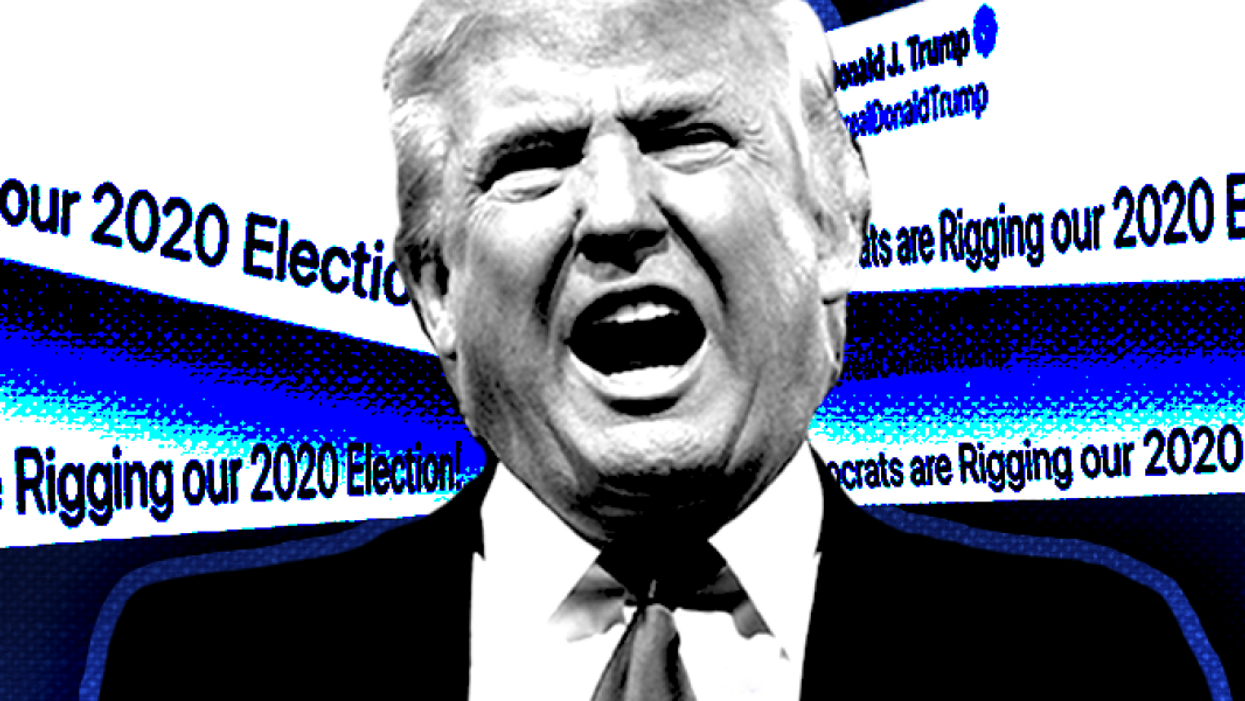
Reprinted with permission from MediaMatters
The Wall Street Journal editorial board published a piece late Thursday afternoon, "The Facts on Trump's Fraud Letter," purporting to rebut a number of easily debunked lies about the 2020 election that former President Donald Trump had written in a letter the paper had published the day before.The paper's official reasoning for having published the letter, however, has just created an even bigger problem as it has established a bizarre premise that even mentioning the election results in any factual manner is a criticism of Trump — for which he is entitled to equal time or space in the press.
A news reporter at the Journal complained anonymously to CNN that "our opinion section continues to publish misinformation that our news side works so hard to debunk." (It has been clear for quite a while, however, that the Journal's news section exists only as a business front to confer a front of respectability on the paper's opinion side and other Murdoch media outlets.)
In its editorial, the Journal board justified its decision to publish Trump's letter by claiming some kind of editorial obligation in a two-way dialogue. "Mr. Trump is making these claims elsewhere, so we hardly did him a special favor by letting him respond to our editorial," the editorial board remarked. "We offer the same courtesy to others we criticize, even when they make allegations we think are false."
The problem here is that the editorial board piece to which Trump responded, "The Election for Pennsylvania's High Court," never criticized him — it simply mentioned the 2020 election results in a factual context.
The Journal's earlier piece discussed a relatively minor issue from the 2020 election in Pennsylvania, in which U.S. Supreme Court Justice Samuel Alito ordered the state to separate out mail-in ballots that arrived after Election Day. (There were just over 10,000 such ballots, and they were ultimately never counted.)
The Journal then opined:
This didn't matter because Mr. Biden won the state by 80,555, but the country is lucky the election wasn't closer. If the election had hung on a few thousand Pennsylvanians, the next President might have been picked by the U.S. Supreme Court. Were late ballots legal, for a Biden victory? Were they illegal, for a second Donald Trump term? Either way, political hell would have broken loose.
That paragraph is important for two reasons. First, it mentioned the actual election result in the state, which Trump cited as the basis for his supposed response. And second, this was the only mention of Trump's name in the entire piece. (The editorial did not even discuss Trump's other attempts to throw out the election results in Pennsylvania, for example, as this was not the topic at hand.)
By publishing Trump's response to the piece, the Journal has set a dangerous precedent here. Going forward, Trump could now claim to his followers that any media outlet even mentioning the 2020 election results is slanted against him, and that he deserves the opportunity to respond.
For example, if any section of the Journal were to publish an overview of the 2022 state elections in the perennial swing state of Wisconsin — using an analysis based on the state election map from 2020 — would the Journal be obliged to publish another screed from Trump denying the legitimacy of the previous election and the accuracy of those numbers?
Or perhaps, will the Big Lie have to be included in election pieces from conservative media outlets as they move forward, in order to cover both sides?








